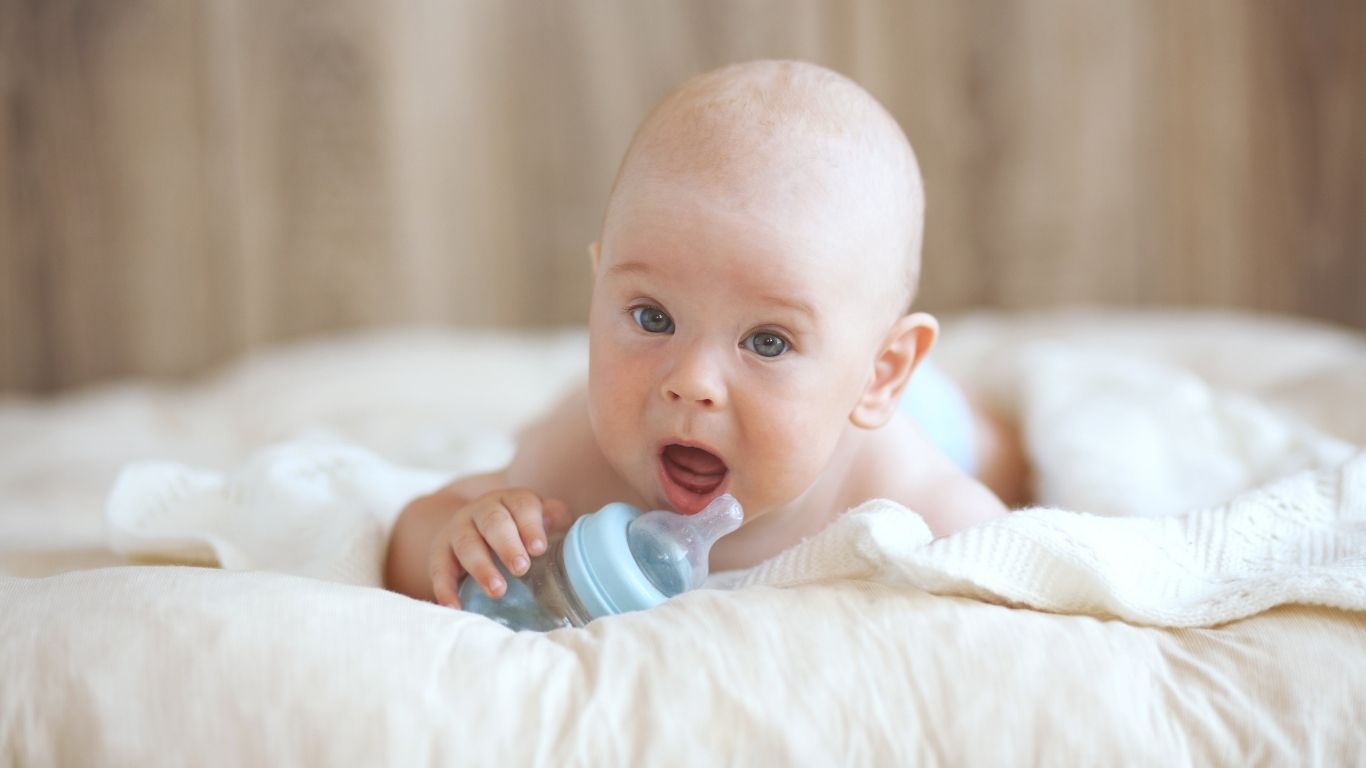
In the case of breastfed babies, the matter is simple — supplementing with water until the age of 6 months is not recommended, because breast milk quenches thirst and satisfies hunger at the same time. What about infants who, for some reason, are bottle-fed? Let’s discuss the current recommendations about providing babies with water.
Table of Contents
Should Bottle-Fed Infants Drink Water?
For formula-fed babies, the same recommendations apply as for breastfed ones, i.e., water supplementation is not necessary until 6 months. However, for the infant to be well hydrated with this feeding method, it is critical to observe the correct proportions when preparing the mixture. Prepare the organic baby formula exactly as directed on the package. It is crucial not to add more powder or change the amount of water.
However, a formula-fed infant may additionally receive water in certain situations, e.g., if it has a fever or suffers from constipation. Water is also recommended during the heat. The baby should drink low-mineralized water (less than 500 mg/l) and non-carbonated water.
What Are the Potential Drawbacks of Giving Water to Infants?
Let’s be honest, supplementing a baby with water is not prohibited and there is no punishment for it. Still, many parents have doubts and ask, “Can babies drink water?” The recommendations are clear: it should not be done before 6 months of age. But why? The point is that it can disrupt the breastfeeding process. A baby who has consumed a lot of water can feel less hungry and take in fewer calories. This, in turn, may reduce the amount of milk in the mother, resulting from the disturbance of the sucking process. A similar thing is with formula-fed babies. If an infant receives too much water, the mineral balance in its body may be disturbed, which can lead to severe health consequences.
Why Is Hydration so Critical?
Remember that a baby’s body reacts much more rapidly to electrolyte imbalances, and it is really easy for a child to become dehydrated. Therefore, especially on hot days or when your little one is ill, make sure he or she consumes the right amount of fluids, whether it is in the form of breast milk, baby formula, or extra water.
An improperly hydrated body works slower, does not cleanse itself of toxins, and causes the baby to feel bad. Dehydration in a child may be indicated by:
- irritability;
- cry;
- sunken eyes with dark circles;
- constipation;
- dry mucous membranes;
- cry without tears;
- reduced skin elasticity and tension;
- a decreased or minimal amount of urine.
How to Choose the Right Water?
If you decide to give your baby water, make sure it is the best water. But which water is the best? Certainly not tap water. Unless it is tested and properly filtered. The point is also that such water may contain, for example, too many minerals that could overload the baby’s kidneys. Do not give your child carbonated water or recently popular medicinal waters.
Much better is mineral water, and preferably spring water. If you decide on mineral water, choose a low-mineralized one with reduced sodium content (below 20 mg/l).
It is also important to store bottled water properly. You might think that since it’s just water, there’s nothing to go wrong with it. However, it is very important that the water for the baby does not stay open for more than 48 hours, and during this time, it is stored in the refrigerator to prevent the multiplication of microorganisms that may be dangerous for the immature digestive system of your little one.
How Much Water Does a Baby Need?
We have already established that an exclusively breastfed baby does not need to drink additional water. It can be introduced when the baby starts to receive solid foods. A formula fed-baby gets water as an addition to it in certain situations. One of the guidelines says:
- an infant weighing up to 10 kg should take approx. 100 ml of fluids for each kilogram of body weight;
- a child weighing 10-20 kg should receive 1000 ml + 50 ml for each additional kilogram of body weight above 10 kg, and the next 10 kg, 20 ml each.